The average cost of Brain Cancer Treatment in Tel Aviv approximately starts from USD 32000
Treatment cost
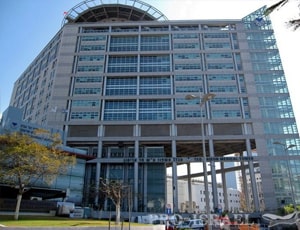
Tel Aviv Sourasky Medical Center -Ichilov Hospital located in Tel-Aviv, Israel is accredited by JCI. Also listed below are some of the most prominent infrastructural details:

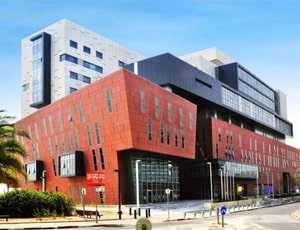
Assuta Hospital located in Tel-Aviv, Israel is accredited by JCI. Also listed below are some of the most prominent infrastructural details:
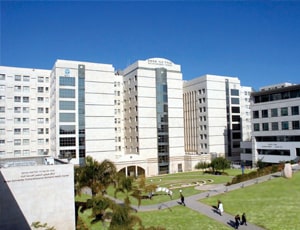
Rabin Medical Center located in Petah Tikva, Israel is accredited by JCI. Also listed below are some of the most prominent infrastructural details:
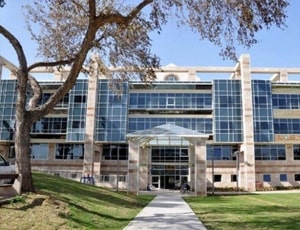
Kaplan Medical Centre located in Rehovot, Israel is accredited by JCI. Also listed below are some of the most prominent infrastructural details:
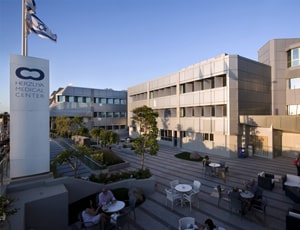
Apart from in-detail treatment procedures available, Herzliya Medical Center located in Herzliya, Israel has a wide variety of facilities available for International Patients. Some of the facilities which are provided by them are Accommodation, Airport Transfer, Interpreter, SIM, TV inside room. Also listed below are some of the most prominent infrastructural details:
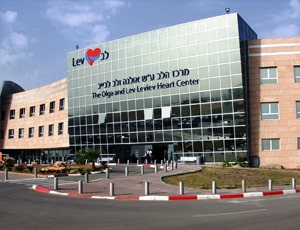
Sheba Medical Center located in Tel-Hashomer, Israel is accredited by JCI. Also listed below are some of the most prominent infrastructural details:
The term "brain cancer" describes the abnormal development of brain cells that result in a mass or tumor. It can interfere with normal brain functions such as speech, movement, thoughts, feelings, memory, vision, and hearing. It is a disease of the brain in which abnormal, cancerous cells grow in the brain tissues. Typically, brain cancer is a developed form of a brain tumor. Primary brain cancer or a brain tumor develops from cells within the brain.
However, all brain tumors are not brain cancer. But one thing to note is that even benign tumors can cause serious problems by increasing intracranial pressure or obstructing vascular structures or cerebrospinal fluid flow in the brain.
Different types of cells in the brain such as gliomas, meningiomas, pituitary adenomas, vestibular schwannomas, and primitive neuroectodermal (medulloblastomas) can become cancerous. Gliomas have several subtypes, which include astrocytomas, oligodendrogliomas, ependymomas, and choroid plexus papillomas.
Brain Cancer Causes
The exact brain cancer cause is still unknown. However, its occurrence has been linked to several risk factors, including the following:
There are two types of brain cancer, including:
Metastatic cancer in the brain is more common than primary brain cancer. They are usually named after the tissue or organ where cancer first develops. Metastatic lung or breast cancer in the brain is the most commonly found brain cancer.
Brain Cancer: Grades
Tumors of the brain are assigned under a grade, depending on how normal or abnormal the cells appear microscopically. Grade measurements will help your doctor plan the most suitable treatment for you.
The brain cancer treatment plan is prepared by a medical specialist, who takes note of the cancer type, location, tumor size, patient age, and general health status before coming up with an individualized treatment plan. Typically, brain cancer treatment options include the following:
Ask your healthcare adviser for the best multiple options and choose the one that meets your expectations
$32000 is the starting cost of Brain Cancer Treatment Surgery in Tel Aviv. JCI are just some of the accreditations which top hospitals in Tel Aviv hold where a Brain Cancer Treatment is conducted.
Brain Cancer Treatment package cost in Tel Aviv has different inclusions and exclusions. There are many hospital who cover the cost of pre-surgical investigations of the patient in the treatment package. The comprehensive Brain Cancer Treatment package cost includes the cost of investigations, surgery, medicines and consumables. Extended hospital stay, complications after the surgery or new diagnosis may affect the overall cost of Brain Cancer Treatment in Tel Aviv.
Many hospitals in Tel Aviv perform Brain Cancer Treatment. Some of the best hospitals for Brain Cancer Treatment in Tel Avivinclude the following:
After discharge from the hospital, the patient has to stay for another 25 days in the country for complete recovery. During this time, the patient undergoes medical tests and consultations. this is to ensure that the treatment was successful and the patient us safe to return.
Tel Aviv is undoubtedly one of the best cities for Brain Cancer Treatment in the world. It offers the best medical expertise and good patient experience at an affordable cost. Some of the other top destinations for Brain Cancer Treatment include the following:
Apart from the Brain Cancer Treatment cost, the patient may have to pay for additional daily expenses such as for guest house after discharge and meals. These include the cost of accommodation and meals outside hospital. The per day cost in this case may range from 75 USD.
After Brain Cancer Treatment surgery, the patient is supposed to stay for about 5 Days in the hospital for recovery and monitoring. This time frame is important for the patient to recover properly and feel comfortable after the surgery. With the help of several tests, it is determined that the patient is doing fine after the surgery and is okay to be discharged.
There are about 2 Hospitals in Tel Aviv that offer Brain Cancer Treatment to international patients. These hospitals have the required infrastructure and a decided Brain Cancer Treatment unit where renal failure patients can be treated. Such hospitals follow all legal protocols and guidelines as specified by the local medical affairs body when it comes to the treatment of international patients.
Some of the most sought after doctors for Brain Cancer Treatment in Tel Aviv are:
Tel Aviv, Israel, is recognized as one of the top cities in the world for healthcare and medical treatment. Tel Aviv has cutting-edge medical facilities as well as excellent treatment modalities. While citizens have access to free healthcare, many patients prefer to seek private medical treatment and consult with doctors from private hospitals. Some of the most popular treatments available in Tel-Aviv include Oncology, Orthopaedics, Cardiology, Neurosurgery, Gastroenterology, Paediatrics, Bone marrow transplants, Pulmonology, etc. Tel Aviv's healthcare system and health insurance ensure high-quality care to its residents. The difference between the city's public and private healthcare systems is not in the quality of care but in the availability of more amenities. Israelis must enroll in the universal public healthcare system. People in the country have the option of purchasing "supplementary insurance" from one of the country's four health funds or private insurance from an insurance provider. This covers items like dental and optical coverage that the government does not provide. The city is equipped with cutting-edge medical technology and equipment. All in all the healthcare standards of the city are pretty amazing and appreciated around the world.
The hospitals in Tel Aviv deliver quality care and treatment. They are internationally recognized and accredited by healthcare organizations like JCI and ISO. Some of the top hospitals in the city include:
The doctors in Tel Aviv play a vital role in delivering top-level healthcare services focusing on each patient’s needs. Some of the top doctors in the city include:
Tel Aviv is an easily reachable city by train, bus, and flight. The nearest airport to Tel Aviv is Tel Aviv (TLV) International Airport from where you can travel to the city by bus or cab. If you are planning to undergo treatment here, MediGence can assist you in planning your medical travel.
Tel Aviv, Israel, is recognized as one of the top cities in the world for healthcare and medical treatment. Tel Aviv has cutting-edge medical facilities as well as excellent treatment modalities. While citizens have access to free healthcare, many patients prefer to seek private medical treatment and consult with doctors from private hospitals. Some of the most popular treatments available in Tel-Aviv include Oncology, Orthopaedics, Cardiology, Neurosurgery, Gastroenterology, Paediatrics, Bone marrow transplants, Pulmonology, etc. Tel Aviv's healthcare system and health insurance ensure high-quality care to its residents. The difference between the city's public and private healthcare systems is not in the quality of care but in the availability of more amenities. Israelis must enroll in the universal public healthcare system. People in the country have the option of purchasing "supplementary insurance" from one of the country's four health funds or private insurance from an insurance provider. This covers items like dental and optical coverage that the government does not provide. The city is equipped with cutting-edge medical technology and equipment. All in all the healthcare standards of the city are pretty amazing and appreciated around the world.
The hospitals in Tel Aviv deliver quality care and treatment. They are internationally recognized and accredited by healthcare organizations like JCI and ISO. Some of the top hospitals in the city include:
The doctors in Tel Aviv play a vital role in delivering top-level healthcare services focusing on each patient’s needs. Some of the top doctors in the city include:
Tel Aviv is an easily reachable city by train, bus, and flight. The nearest airport to Tel Aviv is Tel Aviv (TLV) International Airport from where you can travel to the city by bus or cab. If you are planning to undergo treatment here, MediGence can assist you in planning your medical travel.